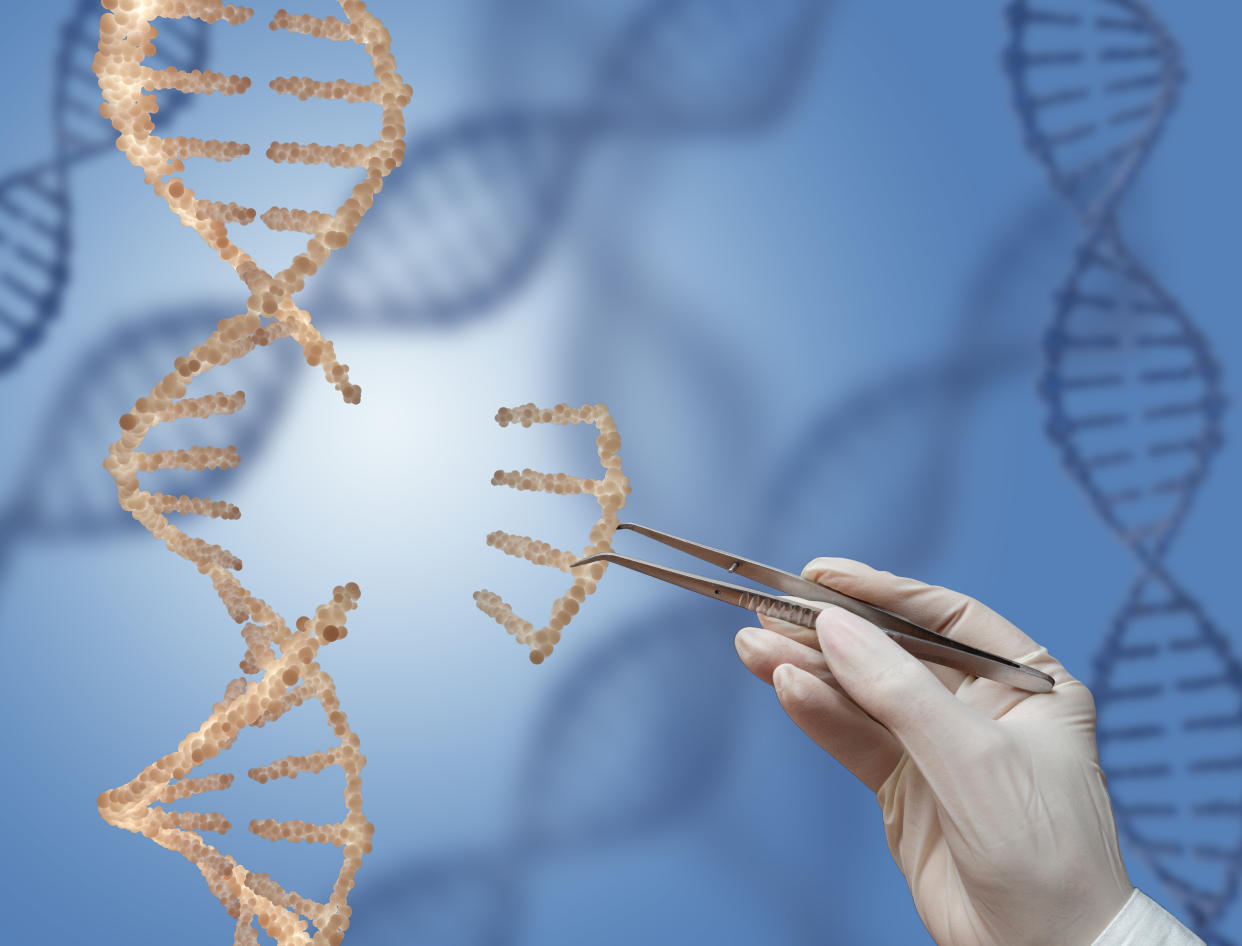Gene editing 'not yet proven to be safe in embryos', official body warns

Genetically editing a human embryo has not been proven to be safe, a major report into the future of creating so-called “designer babies” has warned.
The specialist board behind the report stressed human embryos with altered DNA should not be used to create a pregnancy until it has been established these changes do not bring about “undesired” outcomes.
This benchmark is yet to be met by any gene editing technology, according to the board.
Controversial gene editing allows scientists to remove DNA that codes for diseases from an embryo before it is implanted into a woman’s womb.
Read more: Doctor thinks designer babies could be less than two years away
Advocates argue genes that lead to diseases like Alzheimer’s could be discarded, while many critics question whether we should be “playing God”.
Designer babies are illegal in the UK, however, scientists can carry out experiments on discarded IVF embryos providing they are destroyed immediately afterwards.
The report claims gene editing raises “not only scientific and medical considerations but also a host of ethical, moral and societal issues”.
One expert argued, however, the authors’ criteria for “acceptable clinical use of genome editing in humans” are “far too narrow”.

‘Proceed incrementally and cautiously’
DNA editing technologies – like Crispr – have long been controversial, particularly after a Chinese scientist claimed to have genetically modified twins to be HIV resistant in 2018.
The unverified claim broke Chinese law, with critics accusing him of acting “in pursuit of fame and fortune”.
This prompted the formation of the international commission – an 18-member board across 10 nations with expertise in gene editing technology and human DNA.
Read more: The ethics of 'designer babies'
The commission – made up of the US National Academy of Science and the UK’s Royal Society – has warned genetic edits can be passed down to future generations.
“Extensive societal dialogue” is therefore needed before any nation decides whether to permit human gene editing, it said in its new report.
These edits include alterations to DNA in eggs, sperm, or any cells that lead to their development, as well as early-stage embryos.
If a nation decides gene editing is “permissible”, the commission stressed it “should be limited to the prevention of serious monogenic diseases, which result from the mutation of one or both copies of a single gene”.
Read more: Can designer babies be made smarter?
Examples include cystic fibrosis and sickle cell anaemia.
In these cases, gene editing should only be considered when “prospective parents who are at known risk of transmitting a serious monogenic disease have no option or extremely poor options for having a biologically related child who is not genetically affected without the editing procedure”.
“Any initial uses of [gene editing] should proceed incrementally and cautiously, and provide the most favourable balance of potential benefits and harms,” said commission co-chair Dr Richard Lifton, from Rockefeller University in New York.
In these unique circumstances, the report provides a “responsible clinical translational pathway that determines whether and how editing can be performed efficiently and with high accuracy”.
“Countries would then decide whether an editing application is permissible, informed by preclinical data as well as broad discussion of social and ethical issues,” said Dr Lifton.
Outside of “serious monogenic diseases”, it is “not possible to define responsible translational pathways” for gene editing, according to the report.
“Should they ever be used, it is vitally important these technologies are used for medically justified interventions, based on a rigorous understanding of how the pathogenic variant leads to disease,” said commission co-chair Professor Kay Davies, from the University of Oxford.
“More research is needed into the technology of genome editing in human embryos, to ensure precise changes can be made without undesired off-target effects.”
Not everyone agrees with the report’s stance, however.
Speaking of the HIV-resistant twins, Sarah Norcross from the Progress Education Trust said: “The circumstances in which the world's first genome edited babies were born in 2018 were lamentable, both scientifically and ethically, and lessons needed to be learned.
“Unfortunately, this report goes too far in the other direction.
“The criteria the report sets out, for the first acceptable clinical use of genome editing in humans, are far too narrow.
“The World Health Organization (WHO) is still deliberating on the governance of genome editing and should not feel constrained by this report's governance recommendations if it sees fit to deviate from them.”
The WHO will take the report into account when it issues new guidance on gene editing, expected in 2020.

Why is gene editing controversial?
Critics worry gene editing may one day lead to parents selecting for traits that have nothing to do with health, like eye colour or even musical talent.
With the new technology likely being extremely expensive, only well-off people could afford it, leaving the poor unfairly burdened with diseases.
In countries like the US where people pay for health insurance, companies may eventually refuse to cover those who have not had their genes edited.
Parents may also not get the outcomes they were hoping for, with the DNA of an embryo undergoing some modification in the womb.
Our DNA alone is also not all that shapes us; upbringing and life experiences have a significant impact on traits like intelligence.
Studies even suggest gene editing could cause cancer, rather than eradicating it. A team of US scientists found the technology made cells multiple abnormally and become malignant in the laboratory.
Nevertheless, Dr Kevin Smith from Abertay University in Dundee argued in 2019 “genetic-modifying techniques offer the prospect of protecting future people against common disorders”.
“If several common disorders could be avoided or delayed by genetically modifying humans, the average disease-free lifespan could be substantially extended,” he said.
Dr Smith acknowledged gene editing has “residual safety concerns” and “negative publicity”, therefore recommending “delaying” designer babies for a “modest period of time, in the order for one-to-two years”.
Gene editing is not illegal in the US, however, the research cannot be paid for with federal funds.
In 2015, the US National Institutes of Health said it “will not fund any use of gene editing technologies in human embryos”.


